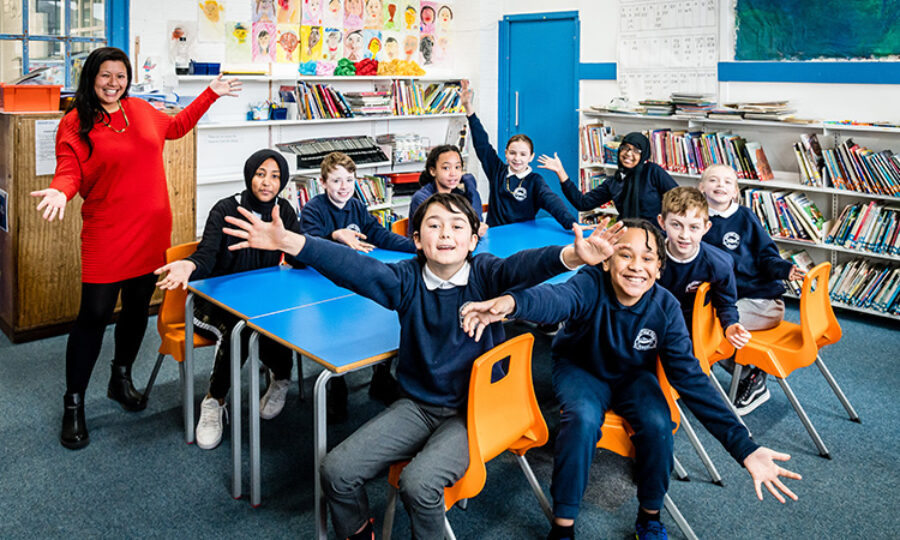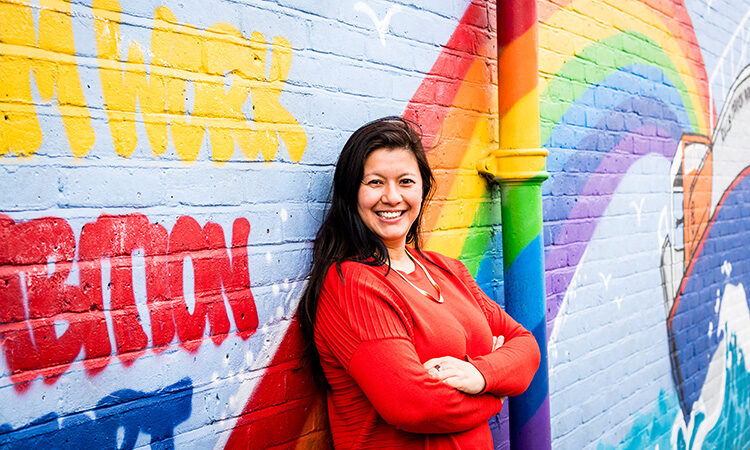Let’s talk Islington

Annabelle Kapoor, member of Islington Council’s Inequality Task Force and head of Drayton Park primary school, and executive head Damien Parrott on how education plays a central role in tackling – or reinforcing existing – inequalities
How diverse is the community here and is that reflected in the school?
Annabelle: It’s a good slice of what Islington is like in terms of different ethnicities, backgrounds and experiences – children and staff. It’s what brings the magic to the school. Everyone plays and works well together. Because we are such a diverse community, we make sure the teaching matches that. They learn about the Equalities Act, LGBTQ history and race equality. All kinds of things.
Educational attainment often differs between children of different backgrounds. How have you overcome that?
Annabelle: First, you have to keep an eye on your data – know the different groups in your school and actively look for comparisons. A few years ago, for example, we found that girls were underachieving in maths, so we made some big changes and now they’re exceeding the boys! It’s about adapting to make sure things work for all groups.
Damien: It’s also the challenge system that we use. Often pupils are put into sets according to ability. Research suggests that this follows lines of existing social inequality. It seems ridiculous to decide someone’s ability at the age of six, when we know that our brains are elastic. Children also develop a sense of themselves as learners from that, as being capable or not. The children in the bottom groups are given less challenging work, so they’re never going to achieve as much as the top sets. There’s a link between being in a bottom group and behaviour, too. But when they’re effectively told they’re a failure every day, it’s no wonder they reject the system.
We take a strong view on that and have an alternative way of working. We set out a range of challenges for the children and allow them to choose. They can then ask for help when they get stuck. That has transformed children’s attitudes and their outcomes.

How else might inequality be addressed in schools?
Damien: If we want to really address inequality in schools, we’ve got to look deeply into our own practices and structures. Many of the conversations that we’ve had, or listened to, are around the experiences of Black people and Black boys in particular. It is clear that there is structural racism at play. We need to make a fundamental change to address that.
Annabelle: The demographic of a school can also change with how well it is rated by Ofsted, which can have a lasting effect. When a school is rated ‘outstanding’, it can transition to become more white and middle class. Schools differ greatly in their diversity just because some areas are much wealthier than others.
Annabelle, you’re on Islington Council’s Inequality Task Force. What role do you play?
Annabelle: I have been helping Islington Council to get more schools involved. They also came to see our school council session, where we talked about inequality with every child in the school, from year two to year six. Some are louder or more confident than others, but all children have something to say – they have opinions and feelings. That is something we try to look out for: we try to make sure we’re not biased towards the more extroverted children. It’s important children know that their opinions are valid and we want to hear them.
I have to say, when I turned up to the first task force meeting, I did think, “am I meant to be here?” as I don’t have political experience. But actually, I might be ‘just’ a head teacher, but I see a lot, as do other teachers in the borough in their schools. We see daily life, parents, grandparents, children, teenagers. They all filter through here. We have a lot to say, and our kids have a lot to say.
Damien: If we really want to do something about addressing inequality in Islington, it is important schools are in that mix. Islington has real poverty and real wealth and somehow, those two worlds don’t seem to have much contact with one another. I believe that schools can play a key role in addressing that.
Let’s Talk Islington: want to help make Islington a more equal borough? The council wants your views. Take part in the Let’s Talk Islington survey to have your say and visit the council website for more details on ways to get involved.
